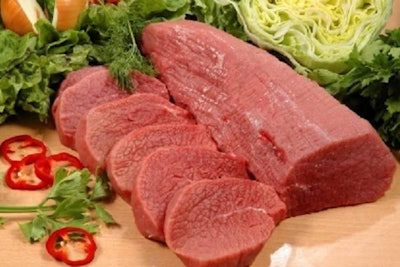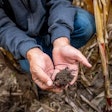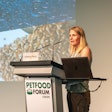
Read just about any website or social media posting about dog nutrition, and you’re likely to see statements about dogs being carnivores and needing to eat meat, because that’s what they would eat “naturally” or “in the wild.”
For example, “we … believe in the commonsense logic of mimicking a dog’s natural ancestral diet—in modeling a dog food after what an animal would naturally consume in the wild. So, we shamelessly favor dog foods rich in meat”—from Dogfoodadvisor.com. Or, “dogs are meat eaters: dogs are descendants of the carnivore wolf, and thus, they should eat meat”—from Slimdoggy.com, which lists “high in protein and fat (meat or fish as a first ingredient)” as the first required attribute for a good dog food.
This belief is perpetuated—and, in some cases, driven—by quite a few pet food companies who tout claims such as “rich in meat,” “whole meats” or “high in fresh meat” on their websites and dog food packaging, and continually push the envelope in terms of levels of meat and protein. (Full disclosure: We, too, are jumping on this bandwagon and developing next year’s Petfood Innovation Workshop to focus on meat, though it will also cover novel and alternative proteins.)
The question is, or should be, is this belief and approach to feeding dogs accurate and based on science? As a reference for its statements, Dogfoodadvisor.com cites a book, See Spot Live Longer, published in 2007 by Dr. Steve Brown, who developed Charlee Bear Dog Treats and Steve’s Real Food for Pets (a raw diet), according to the website selling his books (Dogwise.com). Neither that site, nor either of the brand websites, provide any information about his education, experience or expertise in dog nutrition. He may be an expert, but it’s difficult to tell.
Another book, Dog Food Logic (also available on Dogwise.com) and its author, Linda Case, do use science and research to make the case that dogs are actually omnivores—as are their most direct ancestors, wolves. Case has a master of science in canine/feline nutrition from the University of Illinois, where she lectured on companion animal science for 15 years. Her numerous writings include as co-author of a scientific text, Canine and Feline Nutrition: A Resource for Companion Animal Professionals.
Dog Food Logic has received high praise from other pet nutrition experts for its approach to educating consumers about the myriad aspects of nutrition, dog food and pet food marketing to help them make better, more informed decisions—all from a base of science. That includes an entire chapter on whether dogs are carnivores or omnivores, which Case recently excerpted on her blog, The Science Dog. Comparing dogs to cats (which are obligate carnivores), she wrote:
“In contrast, most of the canid species, including the domestic dog, are more generalist in their eating habits and subsequently in their nutrient needs. In the wild, wolves and coyotes exist as opportunistic predators, hunting and eating the type of prey that happens to be available. In addition to the flesh of their prey, wild canids readily consume viscera (stomach, intestines) which contain partially digested plant matter. Canid species also scavenge carrion and garbage and regularly consume fruits, berries, mushrooms and a variety of other plant materials. Similar to its wild cousins, the domestic dog is a predatory species that also consumes plant foods and scavenges, and is capable of consuming and obtaining nutrition from a wide variety of food types.
“Not only does the dog naturally choose a wider variety of foods to eat than do cats; the dog is capable of deriving needed nutrients from plant foods more efficiently than do cats.
“Altogether, the nutrient, metabolic and anatomical characteristics of dogs place them on the omnivorous side of the spectrum within the wide range of species who hunt prey, scavenge and consume plant foods.”
Can we keep producing enough meat?
Case’s argument, no matter how well reasoned or supported by fact, is not likely to change the opinions of people—including pet food professionals—who fervently believe dogs are carnivores and need high levels of fresh, whole meat. Even for them, however, another question remains: Is this focus and approach to feeding dogs sustainable?
The question is important because dogs, and cats, have a fierce competitor for all that meat: humans. According to data from the Organization for Economic Cooperation and Development, the average American adult ate 198 pounds of meat in 2014; the average globally was 75 pounds. “By 2024, these numbers are projected to increase to 207.5 pounds per person in the US and 78.3 pounds globally,” wrote Todd Reubold of Ensia on Greenbiz.com. That’s an increase of more than 4% per person.
Reubold’s article focused on the sustainability of increasing meat consumption mainly in terms of its impact on the environment, as more meat-producing animals are raised to meet the rising demand. Yet, in this case, “sustainability” also means, can this situation really continue, for humans or pets? Will there come a day when there simply isn’t enough meat?
While some consumers, as well as human food producers, are turning to alternative sources of protein, the preference for meat seems to still be accelerating. Meanwhile, pet food companies have not been shy about finding and using novel protein sources, often because of perceived pet allergies or dietary intolerances—think rabbit, kangaroo, even insects—but the supply of those ingredients is not yet scalable at a financially feasible level. Even if that changes, the constant drumbeat for high meat, whole meats and meat first could cause many pet owners and influential online pet food rating sites to turn away from products featuring nontraditional protein sources.
Will we run out of meat?



















